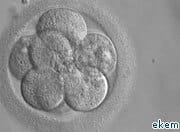Over 40 per cent of voters in the US state of Mississippi have backed a proposal to give human embryos full legal rights as people.
It wasn’t enough for the measure to become law, but it has stirred debate around the world about the status of human embryos.
The group behind the proposal is still pursuing similar initiatives in six other states.
Abortion
Personhood USA wants to get the measure on 2012 ballots in Florida, Montana, Ohio, Oregon, Nevada and California.
The Mississippi ‘personhood’ amendment was intended to prompt a legal challenge aimed at overturning Roe v Wade – the 1973 Supreme Court decision that established a legal right to abortion.
But earlier this month the initiative failed to gather enough support to become law.
Misconceptions
Keith Mason, co-founder of Personhood USA, lamented the result, saying “it’s not because the people are not pro-life.
“It’s because Planned Parenthood put a lot of misconceptions and lies in front of folks and created a lot of confusion.”
The initiative was endorsed by both candidates in the state of Mississippi’s governor race, Republican Phil Bryant and Democrat Johnny Dupree.
Supported
The Mississippi Baptist Convention supported the measure through its lobbying arm, the Christian Action Commission.
Opponents argued that the change would eliminate IVF and lead to a ban on the morning-after pill.
Trivialising
The White House has welcomed the amendment’s defeat, saying: “The president believes that extreme amendments like this would do real damage to a woman’s constitutional right to make her own health care decisions”.
Earlier this year Britain’s largest abortion provider was criticised for trivialising abortion after announcing plans to send text message reminders to women booked in for an abortion.
BPAS, formerly the British Pregnancy Advisory Service, which carries out almost one third of NHS-funded abortions, likened the service to reminders sent out by dentists before a check-up.

